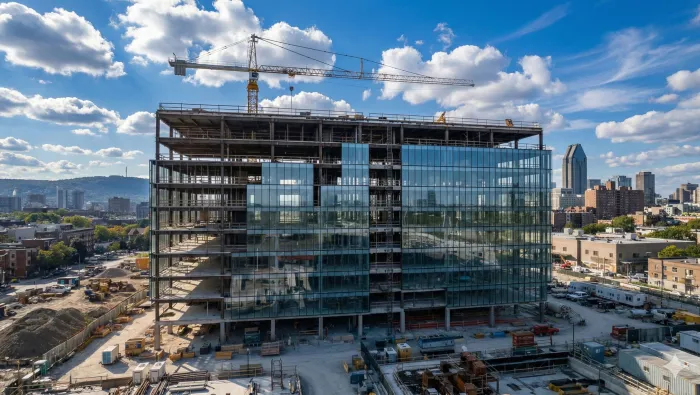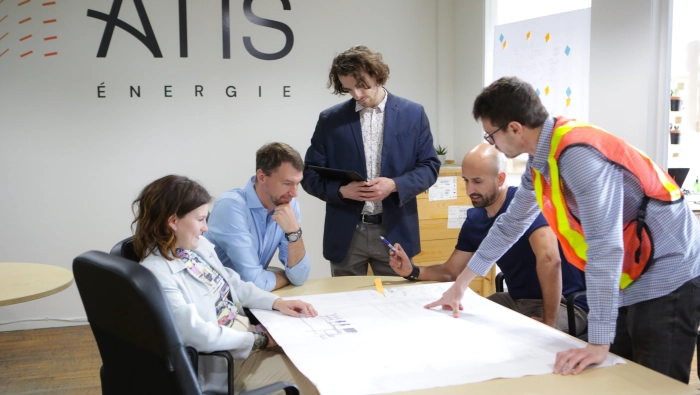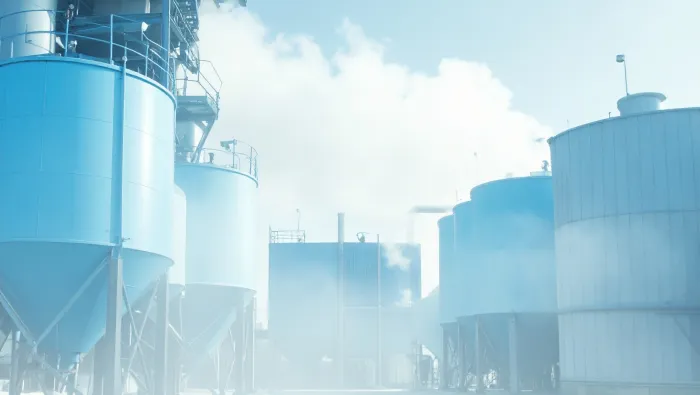Blog
Supporting clients in the meat industry with winning energy efficiency solutions
15 July 2025

Blog
15 July 2025

Companies like ATIS Énergie that specialize in energy productivity can bring significant value to companies in the meat production and processing sector, offering custom solutions to improve energy efficiency at every stage of production. Here’s how:
Energy audit: We carry out a detailed audit of your facilities to identify areas where energy is being wasted and recommend corrective measures. This audit covers all processes, from slaughtering to refrigeration and packaging.
Heat flow analysis: We examine heat flows in facilities, particularly in heating, ventilation and air-conditioning (HVAC) systems, to optimize efficiency and reduce heat loss.
Improving cooling systems: Refrigeration accounts for a significant proportion of energy consumption in the meat processing industry. We propose solutions to improve cooling system efficiency, cut energy costs, reduce washing times, control air humidity and extend the life of equipment.
Heat recovery: We implement heat recovery systems from refrigeration units and reuse this energy in other processes, like water or space heating.
Energy management systems (EMS): We install energy management systems that monitor energy consumption in real time, automate energy-intensive processes and optimize production schedules to boost efficiency.
Ventilation control: We integrate intelligent systems to manage ventilation based on your unique needs, thus reducing energy consumption without compromising the quality of your products or the comfort and wellbeing of your employees.
Installing renewable energy sources: We advise on and install solar panels, wind turbines or other green technologies to supply part of the energy needed for operations, reducing dependency on fossil fuels.
Streamlining cooking processes: Cooking and processing meat requires significant amounts of thermal energy. We optimize these processes to reduce energy consumption without compromising product quality.
Thermal insulation: We improve building and equipment insulation to minimize heat loss and therefore reduce the energy needed to maintain temperatures.
Identifying subsidies: We help companies identify and access available subsidies or tax credits for energy efficiency projects, which can significantly reduce investment costs.
Financial planning: We recommend financial models to fit your unique needs and goals, such as energy performance financing (ESCO), where energy savings cover the costs of improvements made.
Training programs: We offer training programs as part of our effort to raise employee awareness around energy efficiency best practices, encouraging all team members to adopt eco-responsible habits.
Rallying teams: We help foster a corporate culture focused on energy efficiency, helping companies adopt new technologies faster and optimize their practices.
By collaborating with us, companies in the meat production and processing sector can reduce their operational costs while improving their environmental performance, thereby meeting growing consumer demand for more sustainable practices.
Contact us to learn more about our expertise in the meat processing industry

24 February 2026
The 12th edition of The State of Energy in Québec, published by HEC Montréal, sends a clear message to Québec’s industrial sector: the energy environment is changing quickly, and strategic planning can no longer rely on past assumptions.

3 April 2024
ATIS Énergie is celebrating 20 years at the forefront of the fight against climate change. To mark this anniversary, we're taking a look at how the field has changed over the past two decades. We believe that protecting the environment through energy management is more important than ever—for us and for future generations.

20 May 2025
Quebec is sitting on an energy source that’s all too often overlooked: waste heat emissions. Generated primarily from industrial processes, wastewater treatment plants, data centres and incinerators, this thermal waste is a significant source of energy that can—and should—be recovered and reused. Let’s look at how waste heat can be repurposed to meet the energy needs of buildings and industrial operations.